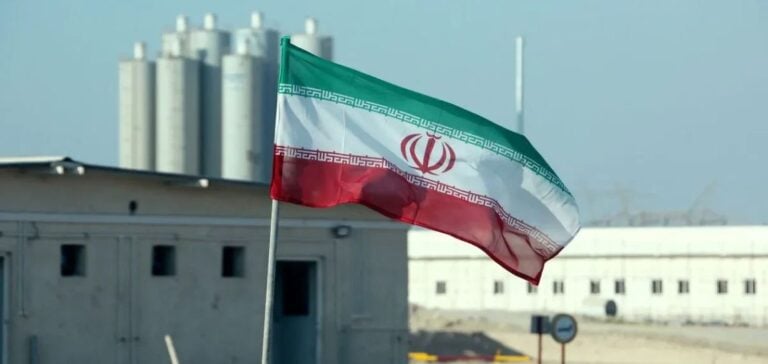Talks began this Monday in Geneva between Iran and the E3 group (France, Germany, United Kingdom) to address the acceleration of Iran’s nuclear program. These consultations explore ways to strengthen regulatory frameworks and prevent risks of nuclear proliferation.
Iran’s uranium enrichment levels, now reaching 60% as monitored by the International Atomic Energy Agency (IAEA), deeply concern European powers. France, Germany, and the United Kingdom are calling for a strict return to compliance with the 2015 nuclear deal, which has been under strain since the United States withdrew in 2018.
A challenge for nuclear regulation
Iran recently began feeding new centrifuges at its Fordo site, significantly increasing its enrichment capabilities. According to the IAEA, this enrichment level is the highest for a country without declared nuclear weapons. Although Iranian authorities claim the program is for civilian purposes, international observers remain skeptical.
In a letter to the United Nations Security Council, European powers expressed their concerns and hinted at possibly triggering sanctions mechanisms under Resolution 2231. This resolution, which legitimized the 2015 nuclear deal, is set to expire in October 2025, making the current discussions urgent.
Regulatory and political stakes
The regulatory framework surrounding Iran’s nuclear program is at the heart of the Geneva consultations. European powers aim to strengthen monitoring mechanisms while urging Tehran to adhere to its 2015 commitments, which included keeping uranium enrichment at significantly lower levels.
The imminent return of Donald Trump to the U.S. presidency adds a political dimension to the discussions. His “maximum pressure” policy during his first term led to the U.S. withdrawal from the deal, complicating the implementation of stable regulatory frameworks. Since then, Iran has gradually reduced its compliance with the deal, exacerbating tensions.
Regional and international perspectives
The implications of these discussions go beyond nuclear concerns. Middle Eastern tensions, coupled with Iran’s economic fragility, make diplomatic progress critical. Tehran’s regional allies are weakened, while sanctions continue to heavily impact its economy.
Strengthening regulatory frameworks could provide a path to stabilization for all parties. However, this depends on negotiators finding a compromise that addresses both the security concerns of European powers and Iran’s economic demands.






















